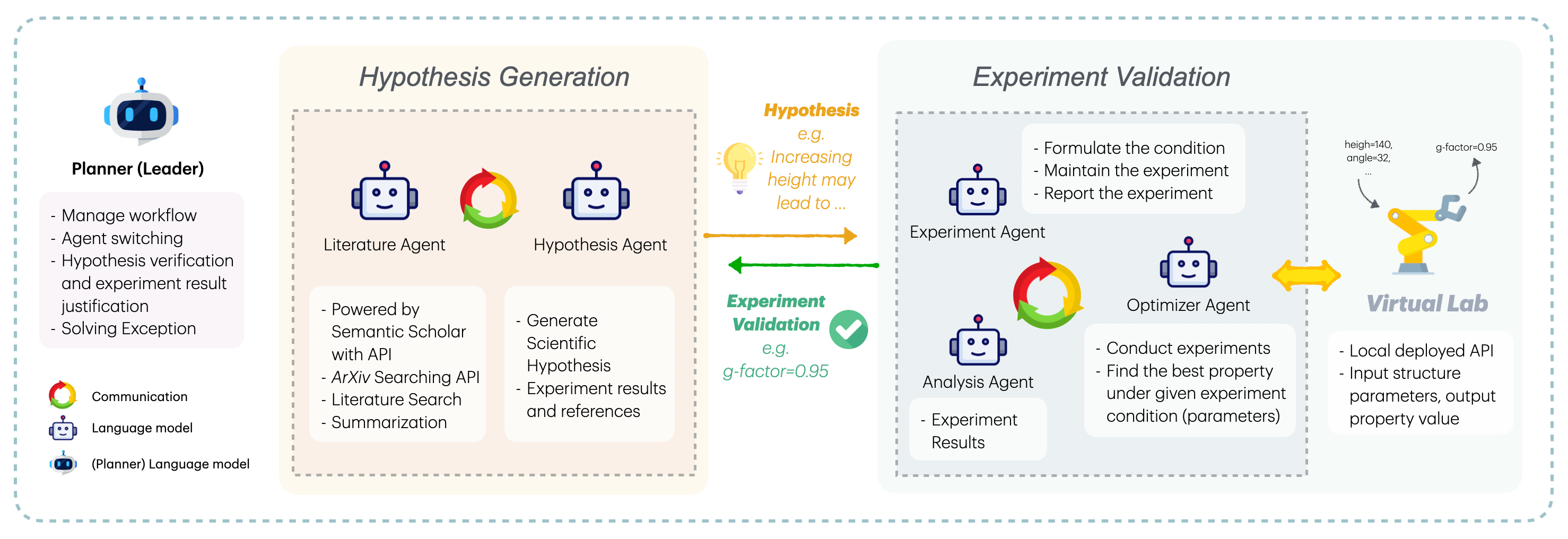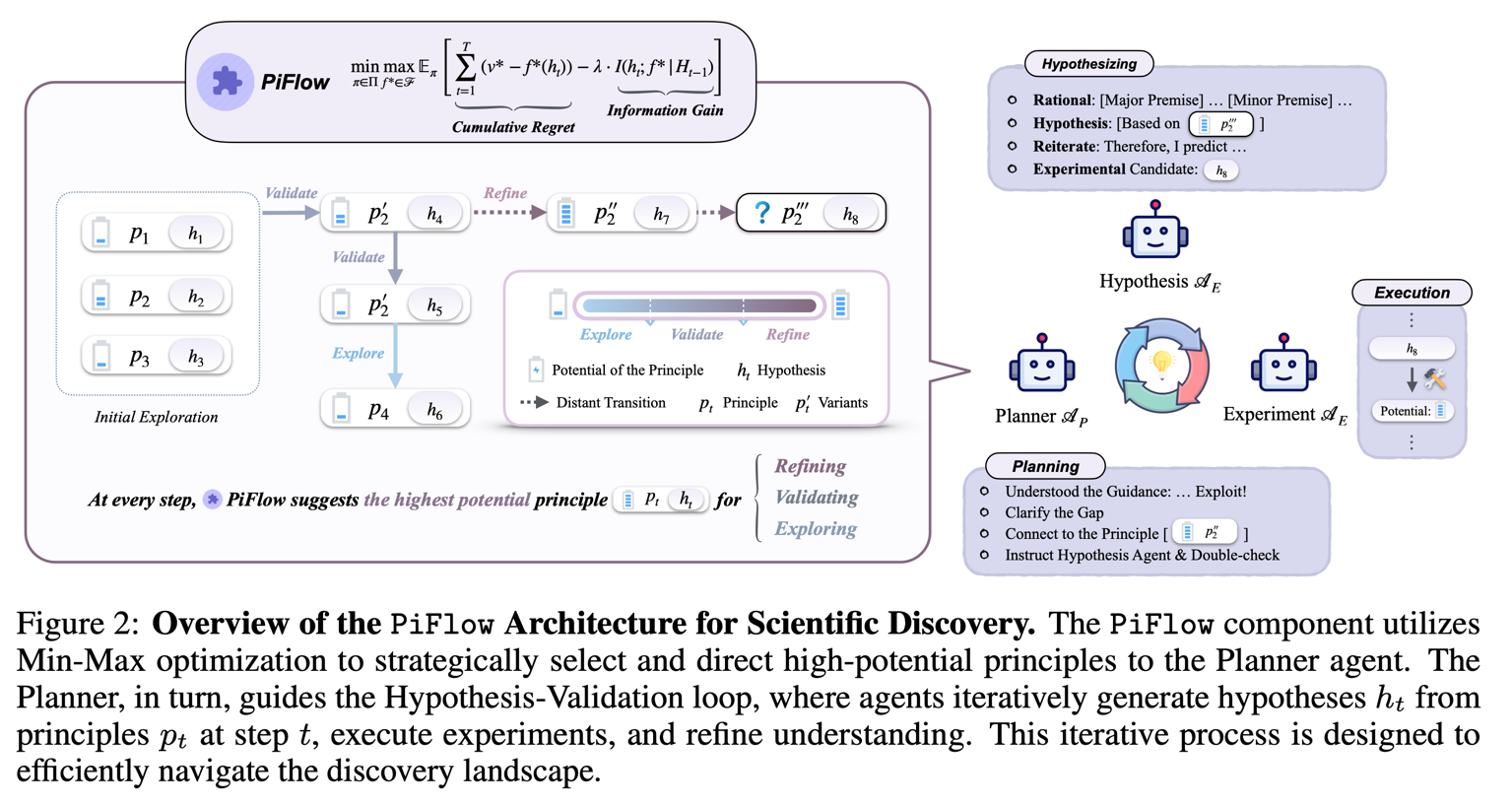Publications
publications by categories in reversed chronological order. generated by jekyll-scholar.
2025
- AI4Mat 2025
 PriM: Principle-Inspired Material Discovery through Multi-Agent CollaborationRyan Zheyuan Lai*, and Yingming Pu†In AI for Accelerated Materials Design - ICLR 2025, Mar 2025
PriM: Principle-Inspired Material Discovery through Multi-Agent CollaborationRyan Zheyuan Lai*, and Yingming Pu†In AI for Accelerated Materials Design - ICLR 2025, Mar 2025Complex chemical space and limited knowledge scope with biases holds immense challenge for human scientists, yet in automated materials discovery. Existing intelligent methods relies more on numerical computation, leading to inefficient exploration and results with hard-interpretability. To bridge this gap, we introduce a principles-guided materials discovery workflow powered by language inferential multi-agent system (MAS). Our framework integrates automated hypothesis generation with experimental validation in a roundtable system of MAS, enabling systematic exploration while maintaining scientific rigor. Based on our framework, the case study of nano helix demonstrates higher materials exploration rate and property value while providing transparent reasoning pathways. This approach develops an automated-and-transparent paradigm for material discovery, with broad implications for rational design of functional materials.
(Remark: Specific case study on nanohelix discovery, an initial explroation of principle-based material discovery. )@inproceedings{pu2025prim, title = {PriM: Principle-Inspired Material Discovery through Multi-Agent Collaboration}, author = {Lai, Ryan Zheyuan and Pu, Yingming}, booktitle = {AI for Accelerated Materials Design - ICLR 2025}, year = {2025}, month = mar, url = {https://openreview.net/pdf?id=lhobZk76wX}, } - Preprint
 PiFlow: Principle-aware Scientific Discovery with Multi-Agent CollaborationYingming Pu, Tao Lin†, and Hongyu ChenIn arXiv, May 2025
PiFlow: Principle-aware Scientific Discovery with Multi-Agent CollaborationYingming Pu, Tao Lin†, and Hongyu ChenIn arXiv, May 2025Large Language Model (LLM)-based multi-agent systems (MAS) demonstrate remarkable potential for scientific discovery. Existing approaches, however, often automate scientific discovery using predefined workflows that lack rationality constraints. This often leads to aimless hypothesizing and a failure to consistently link hypotheses with evidence, thereby hindering systematic uncertainty reduction. Overcoming these limitations fundamentally requires systematic uncertainty reduction. We introduce \textttPiFlow, an information-theoretical framework, treating automated scientific discovery as a structured uncertainty reduction problem guided by principles (e.g., scientific laws). In evaluations across three distinct scientific domains – discovering nanomaterial structures, bio-molecules, and superconductor candidates with targeted properties – our method significantly improves discovery efficiency, reflected by a 73.55% increase in the Area Under the Curve (AUC) of property values versus exploration steps, and enhances solution quality by 94.06% compared to a vanilla agent system. Overall, \textttPiFlow serves as a Plug-and-Play method, establishing a novel paradigm shift in highly efficient automated scientific discovery, paving the way for more robust and accelerated AI-driven research.
(Remark: An Unified framework with strong theoretical guarantee for scientific discovery. )@inproceedings{pu2025piflow, title = {PiFlow: Principle-aware Scientific Discovery with Multi-Agent Collaboration}, author = {Pu, Yingming and Lin, Tao and Chen, Hongyu}, booktitle = {arXiv}, year = {2025}, month = may, url = {https://arxiv.org/abs/2505.15047}, }